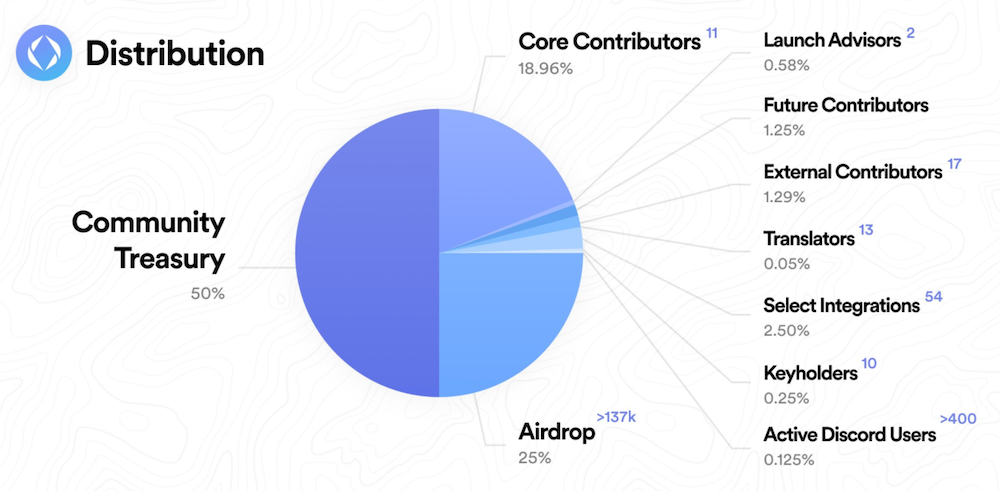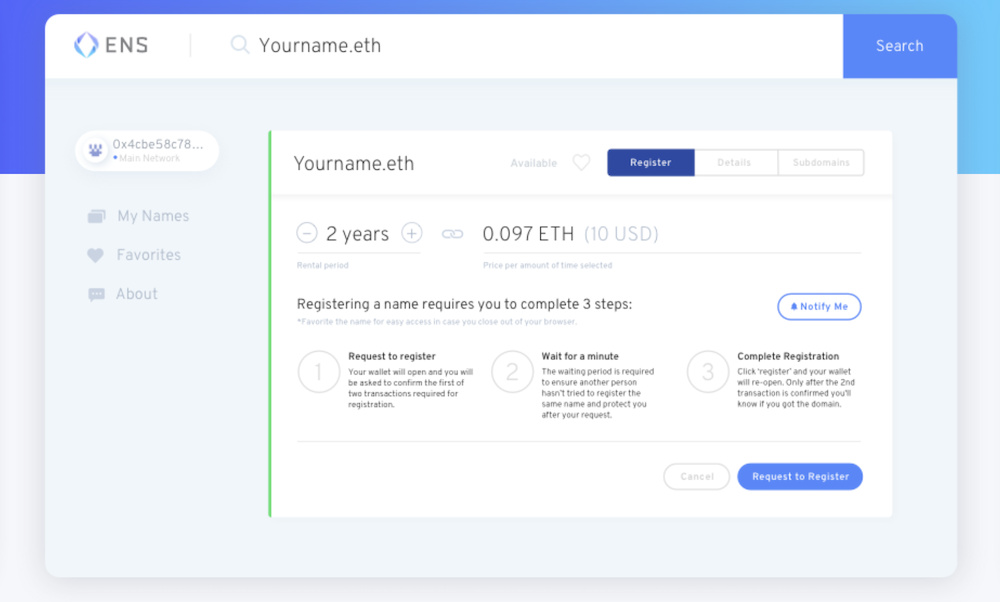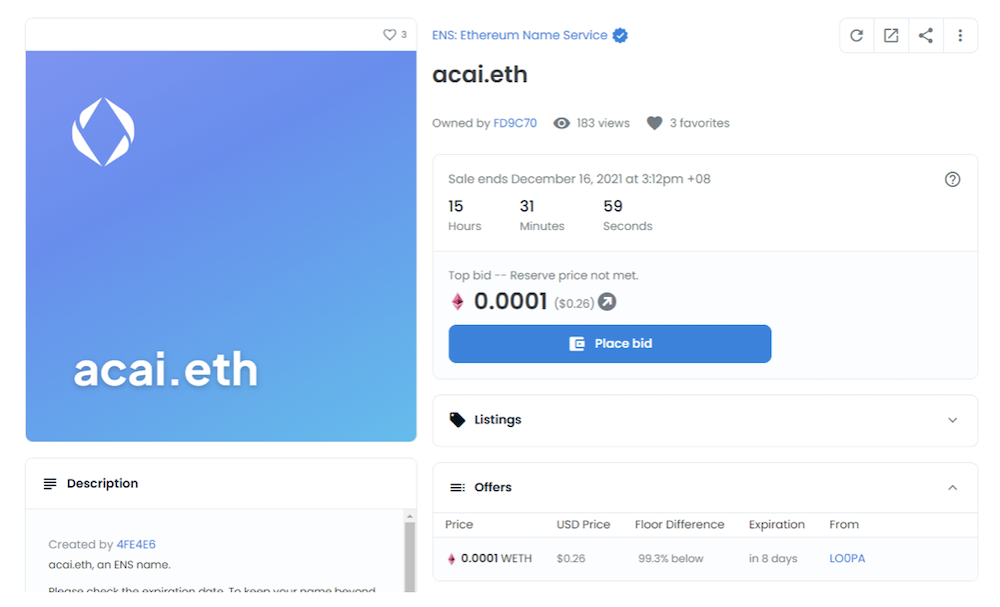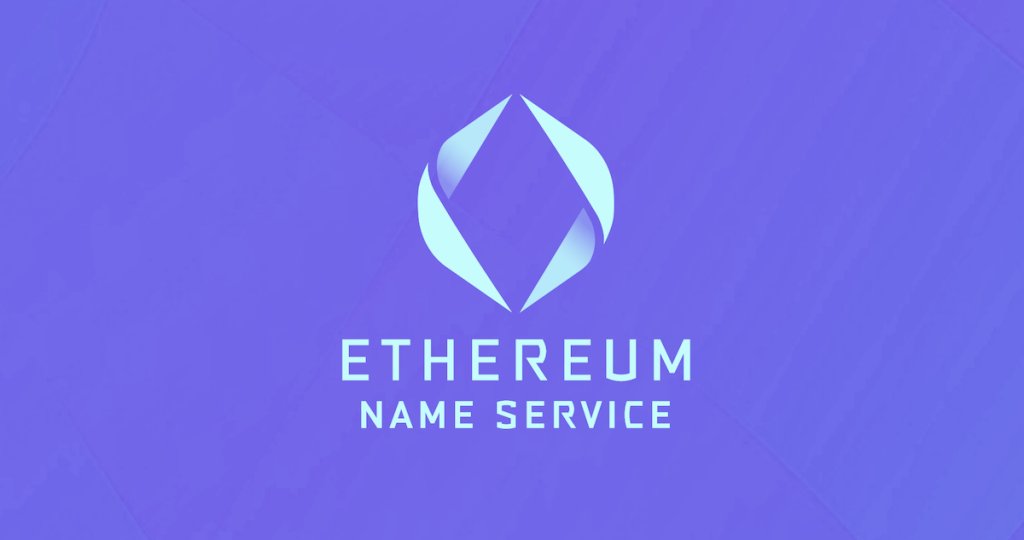The Ethereum Name Service (ENS) is a naming service that has similar goals to the well-known Domain Name System (DNS) used commonly in websites. Its functionality ranges from naming things like wallet addresses, hashes, and other machine identifiers, primarily turning them into simplistic readable addresses.
Turning machine-readable numbers such as 0x3Ac710c45AcAA126b5985826B9f5DA87c1F30A33 into human readable alternatives is an essential component in approving blockchain adoption for retail. It however, has a significantly different architecture from DNS due to its capabilities, disadvantages, and long-term potential.
Initially, ENS auctioned popular six-three letter domain names to interested participants using the Vickrey auction. Each has .eth attached to the end, like .com, which can be attached to multiple addresses, hashes, as well as other information.
ENS can now be bought easily if the domain name is not taken or taken names can also be bought via platforms such as OpenSea (OS).

Like DNS, ENS operates on a system of dot-separated hierarchical names of domains and will have full control over operational subdomains as well if the main domain is owned. For example, if Bob owns ‘bob.eth’ he can create a domain name such as ‘pay.bob/eth’.
ENS has also launched a governance token in line with being a decentralized autonomous organization (DAO). An airdrop that occurred for users owning an ENS domain on 31 October 2021 resulted in a large rise in the token’s price, and it has generating interest due to its many possibilities and ability to scale.
How does ENS work?
A top-level domain like ‘.eth’ is owned by smart contracts called Registrars. In simplistic terms, these use ERC-721 Non-Fungible Tokens (NFT) to represent a unique address, and registers are a smart contract that own the domain and issues subdomains of that domain to that user.
Anyone can obtain ownership of a domain by following the rules imposed by the Registrar.
What can you do with ENS?
ENS helps to reduce confusion with multiple addresses when sending cryptocurrencies. If you ever sent it to the wrong address before, you would understand the need for ENS.
Think about it as your local PayNow function, it allows you to save a friend’s PayNow Number as contact. In similar context, ENS allows users to turn long strings into easy phrases to remember. This creates a better user experience for many users.
An ENS user can always create subdomains that they can assign other data, and it doesn’t always have to be a wallet address, it could be other things such as a smart contract or transaction.
For example, long wallet addresses like 0x3Ac710c45AcAA126b5985826B9f5DA87c1F30A33 can easily be changed to something like paying a user such as ‘pay.bob.eth’.
Registering an ENS and the cost

You can register a domain in the main website ens.domains. If the name is not taken, you will be able to see instructions on registering. Settings such as registration and an estimate of the fees will be shown. You can follow the steps above to requestion as well as register the address.
The rough costs to register a ‘.eth’ domain are as follows.
- 5+ character name = $5 a year in ETH
- 4-character name = $160 a year in ETH
- 3-character name = $640 a year in ETH
ETH names are also tradable NFTS. Popular ones are usually taken and can be bought sometimes on platforms like OS.
For example, as seen below, the domain acai.eth can be bought and currently the top bid is 0.0001 ETH. Do remember to check the expiration date when buying from OS.

Closing thoughts
ENS has no investors, but has received financial support from platforms not limited to Ethereum Foundation and Binance_X.
Currently, the team is aiming to expand users across the world by support languages of 12 nations, and plans to integrate more into the future.
In the need for decentralization today, ENS is a step forward in promoting retail adoption. In similar context on how we no longer need IP addresses in IOT to navigate the web, we could see a rise in its popularity.
There are also mainly similar protocols such as Unstoppable Domain, Namecoin and Handshake. All of which have their advantages and disadvantages. Note that Unstoppable domain has no renewal fees and ranges an average cost of $42 for a domain.
All of these platforms help to connect retail to the cryptocurrency industry and since its airdrop which has allowed user to gain whopping 5-digit profits, there has been a significant rise in interest.
Featured Image Credit: CoinMonks
Also Read: Bitcoin Cash ($BTH) And Ethereum Classic ($ETC): A Quick Dive Into Crypto History



































